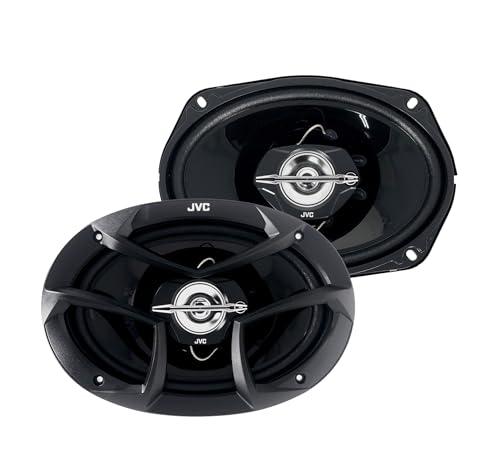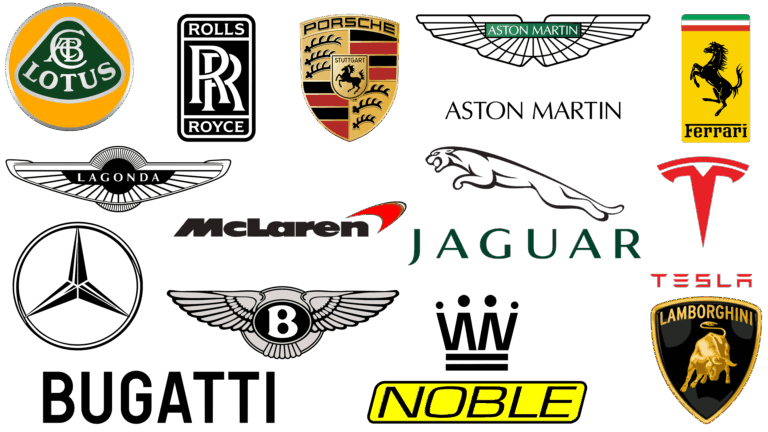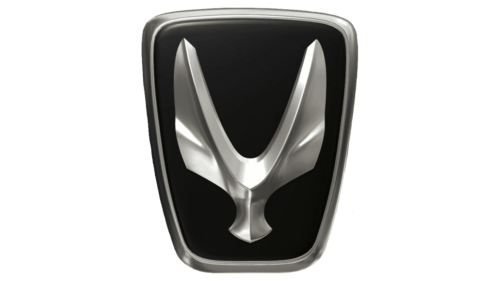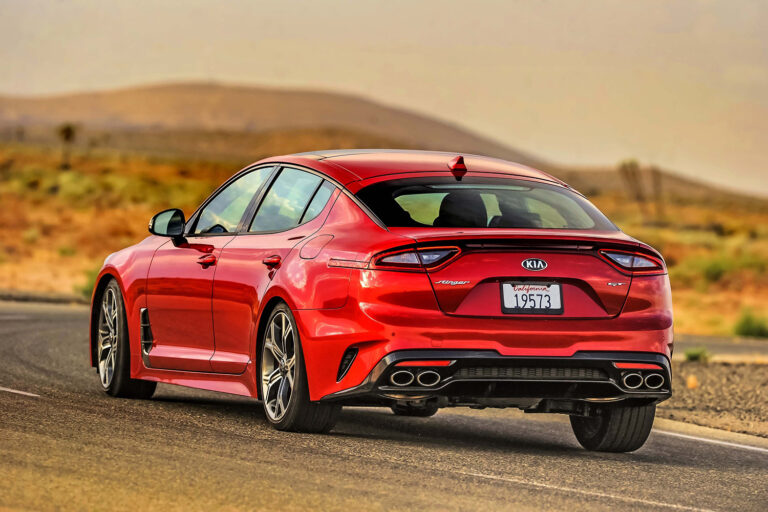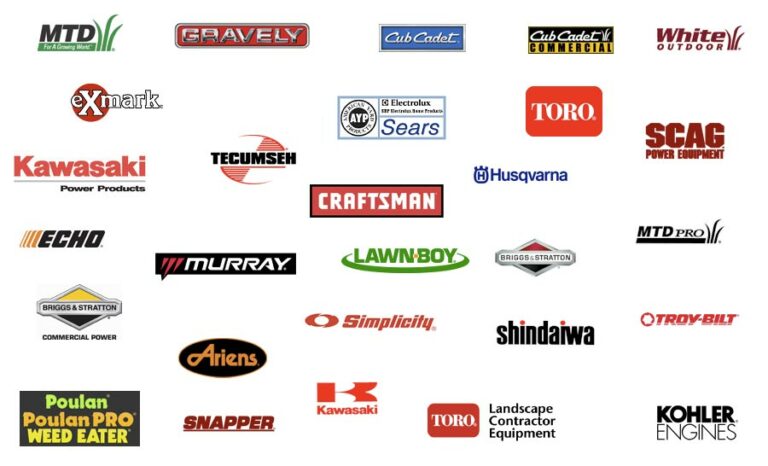SUV Car Brands List: Your Comprehensive Guide to the Sport Utility Vehicle Market
SUV Car Brands List: Your Comprehensive Guide to the Sport Utility Vehicle Market cars.truckstrend.com
Introduction: The Reign of the Sport Utility Vehicle
The automotive landscape has undergone a dramatic transformation over the past few decades, with one vehicle segment unequivocally rising to dominance: the Sport Utility Vehicle, or SUV. Once a niche category for off-road enthusiasts or large families, SUVs have evolved into the go-to choice for millions worldwide, blending the practicality of a minivan, the ruggedness of a truck, and often the driving dynamics of a car. Their elevated driving position, spacious interiors, versatile cargo capacity, and often available all-wheel-drive systems make them incredibly appealing for a diverse range of consumers, from urban commuters to adventurous families.
SUV Car Brands List: Your Comprehensive Guide to the Sport Utility Vehicle Market
The sheer proliferation of SUVs has led to an explosion in models and brands, creating a vast and sometimes overwhelming market. Understanding the key players, their specialties, and what differentiates them is crucial for anyone navigating this segment. This comprehensive guide aims to demystify the SUV landscape, providing a detailed look at the leading SUV car brands, their diverse offerings, and essential considerations for potential buyers.
The Unstoppable Rise of the SUV
The journey of the SUV from utility vehicle to mainstream sensation is a fascinating one. Early SUVs like the Jeep Wagoneer or Chevrolet Suburban were largely truck-based, focusing on ruggedness and capability. However, the late 20th and early 21st centuries saw the emergence of "crossover" SUVs, built on car platforms, offering a more comfortable, car-like ride without sacrificing much of the desired utility. This innovation, coupled with evolving consumer preferences for spaciousness, perceived safety, and a commanding view of the road, propelled SUVs into the automotive limelight.
Today, SUVs represent the largest segment in many global markets, outperforming sedans and hatchbacks combined. Manufacturers have responded by investing heavily in research and development, leading to an unprecedented variety of SUV models tailored to every conceivable need and budget.
Understanding the Diverse World of SUV Categories
The term "SUV" is a broad umbrella encompassing a wide array of vehicles, each designed with specific purposes and audiences in mind. Understanding these categories can help narrow down your search:
- Compact SUVs: Often referred to as "crossovers," these are the most popular and accessible. They offer a good balance of maneuverability, fuel efficiency, and interior space, making them ideal for city driving and small families. Examples include the Honda CR-V, Toyota RAV4, and Hyundai Tucson.
- Mid-size SUVs: Stepping up in size and capability, mid-size SUVs often offer three rows of seating, making them suitable for larger families. They provide more cargo space and often stronger engine options, with models like the Ford Explorer, Kia Telluride, and Jeep Grand Cherokee.
- Full-size SUVs: These are the giants of the SUV world, typically built on truck platforms, offering maximum passenger and cargo capacity, robust towing capabilities, and often true off-road prowess. The Chevrolet Tahoe, Ford Expedition, and Cadillac Escalade fall into this category.
- Luxury SUVs: Found across all size segments, luxury SUVs prioritize premium materials, advanced technology, superior comfort, and powerful engines. Brands like Mercedes-Benz, BMW, Audi, Lexus, and Land Rover dominate this high-end segment.
- Performance SUVs: A rapidly growing niche, these SUVs combine SUV practicality with sports car-level performance. Brands like Porsche, Lamborghini, and even performance divisions of mainstream brands offer exhilarating options such as the Porsche Cayenne or BMW X5 M.
- Electric SUVs (EV SUVs): The future is electric, and SUVs are leading the charge. These vehicles offer zero tailpipe emissions, instant torque, and often cutting-edge technology. Popular examples include the Tesla Model Y, Hyundai IONIQ 5, Ford Mustang Mach-E, and Volkswagen ID.4.


Major Global SUV Car Brands List
Here’s a comprehensive, though not exhaustive, list of prominent SUV car brands available globally, highlighting some of their popular models and general characteristics:
- Acura: Honda’s luxury arm, offering refined and tech-laden SUVs like the compact RDX and the three-row MDX.
- Audi: Known for sleek design, sophisticated interiors, and quattro AWD. Their Q-series includes the compact Q3, popular Q5, family-friendly Q7, and the sporty Q8. They also have electric e-tron SUVs.
- BMW: Emphasizes "Sport" in SUV with dynamic driving characteristics across its X-series (X1, X3, X5, X7) and electric iX.
- Cadillac: America’s luxury brand, blending bold design with comfort and technology in models like the XT4, XT5, XT6, and the iconic full-size Escalade.
- Chevrolet: A powerhouse with a wide range, from the compact Trax and Equinox to the mid-size Blazer and Traverse, and the large Tahoe and Suburban.
- Dodge: Known for muscle and performance, primarily with the Durango mid-size SUV and the new Hornet compact crossover.
- Ford: Offers a vast lineup, including the popular Escape, Bronco Sport, rugged Bronco, family-friendly Explorer, and the full-size Expedition, plus the electric Mustang Mach-E.
- Genesis: Hyundai’s luxury brand, quickly gaining traction with elegantly designed and feature-packed SUVs like the GV60, GV70, and GV80.
- GMC: Sister brand to Chevrolet, offering more premium and rugged alternatives like the Terrain, Acadia, and the upscale Yukon.
- Honda: Renowned for reliability and practicality, with popular models like the HR-V, CR-V, Passport, and the three-row Pilot.
- Hyundai: Offers excellent value, modern design, and robust technology across its lineup, including the Venue, Kona, Tucson, Santa Fe, and the large Palisade, plus the electric IONIQ 5.
- Infiniti: Nissan’s luxury division, focusing on distinctive styling and comfort with models like the QX50, QX60, and QX80.
- Jaguar: Brings British luxury and sporty handling to the SUV segment with the E-Pace, F-Pace, and the all-electric I-Pace.
- Jeep: The quintessential SUV brand, synonymous with off-road capability. Models include the Renegade, Compass, Cherokee, Grand Cherokee, the iconic Wrangler, and the luxurious Wagoneer/Grand Wagoneer.
- Kia: Shares platforms with Hyundai, offering compelling designs, great features, and strong warranties. Popular models include the Seltos, Sportage, Sorento, Telluride, and the electric EV6.
- Land Rover/Range Rover: The epitome of luxury and off-road prowess, with models like the Discovery, Defender, and the highly luxurious Range Rover lineup (Evoque, Velar, Sport, Range Rover).
- Lexus: Toyota’s luxury arm, known for reliability, comfort, and refined interiors. Their SUV lineup spans from the compact UX to the popular RX, and the large GX and LX.
- Lincoln: Ford’s luxury brand, emphasizing American luxury with models like the Corsair, Nautilus, Aviator, and the full-size Navigator.
- Mazda: Praised for engaging driving dynamics and upscale interiors, with models like the CX-30, CX-5, CX-50, and the new CX-90.
- Mercedes-Benz: Offers a vast range of luxury SUVs, from the compact GLA and GLB to the popular GLC and GLE, the large GLS, the iconic G-Class, and a growing line of EQ electric SUVs.
- Mitsubishi: Focuses on value and practicality with models like the Outlander and Eclipse Cross.
- Nissan: Provides a wide selection from the compact Kicks and Rogue Sport to the popular Rogue, Murano, Pathfinder, and the full-size Armada.
- Porsche: Successfully translated its sports car DNA into high-performance SUVs with the Macan and Cayenne.
- Subaru: Known for standard all-wheel drive, safety, and rugged practicality. Models include the Crosstrek, Forester, Outback, and the three-row Ascent.
- Tesla: Revolutionized the EV market with the popular Model Y and the larger, falcon-winged Model X.
- Toyota: A market leader known for reliability and strong resale value. Offers the Corolla Cross, RAV4, Highlander, 4Runner, Sequoia, and the new Grand Highlander and Crown Signia.
- Volkswagen: Known for German engineering and practical design, with SUVs like the Taos, Tiguan, Atlas, and the electric ID.4.
- Volvo: Prioritizes safety, minimalist design, and Scandinavian luxury. Their XC-series (XC40, XC60, XC90) and new EX/C-series electric models are highly regarded.
- Ultra-Luxury/Performance Niche: Bentley (Bentayga), Rolls-Royce (Cullinan), Lamborghini (Urus), Aston Martin (DBX) – representing the pinnacle of SUV extravagance and performance.
.jpg)
Key Considerations When Choosing an SUV
With such a diverse market, making the right choice requires careful consideration of your specific needs and priorities:
- Size and Seating Capacity: Determine how many passengers you regularly carry and how much cargo space you need. Do you require two, three, or even more rows of seating?
- Fuel Efficiency/Powertrain: SUVs vary greatly in MPG. Consider gasoline, hybrid, plug-in hybrid (PHEV), or all-electric (EV) options based on your driving habits, access to charging, and environmental concerns.
- All-Wheel Drive (AWD) vs. Two-Wheel Drive (2WD): Do you need enhanced traction for snow, light off-roading, or just peace of mind? AWD often comes with a fuel economy penalty and higher cost.
- Cargo Space and Versatility: Look at the usable cargo volume, how easily seats fold flat, and features like a power liftgate or roof rails.
- Safety Features and Ratings: Prioritize models with strong crash test ratings (e.g., from NHTSA, IIHS) and a comprehensive suite of active safety technologies (e.g., automatic emergency braking, lane-keeping assist).
- Technology and Infotainment: Consider the size and responsiveness of the touchscreen, smartphone integration (Apple CarPlay/Android Auto), navigation, and available premium audio systems.
- Budget: This includes not just the purchase price, but also ongoing costs like fuel, insurance, maintenance, and potential depreciation.
- Brand Reputation and Reliability: Research brand reliability ratings and long-term ownership costs. Look at owner reviews and expert analyses.
Practical Advice and Actionable Insights
- Define Your Needs First: Before looking at any specific brand or model, list your absolute must-haves (e.g., 3 rows, AWD, EV) and your nice-to-haves.
- Research Thoroughly: Use reputable automotive review sites, consumer reports, and owner forums to gather information on models that fit your criteria.
- Test Drive Multiple Options: The feel of a vehicle can only be experienced firsthand. Drive several models from different brands on various road types. Pay attention to comfort, visibility, handling, and noise levels.
- Calculate Total Cost of Ownership: Don’t just focus on the sticker price. Factor in fuel costs, insurance premiums, maintenance schedules, and estimated depreciation.
- Don’t Be Swayed by Trends Alone: While popular, an SUV might not be the best fit for everyone. Ensure it genuinely meets your needs, not just current fads.
Concluding Summary
The SUV market is a dynamic and expansive segment, offering unparalleled choice to consumers. From compact crossovers perfect for urban adventures to full-size luxury behemoths capable of tackling any terrain, there’s an SUV for virtually every lifestyle and budget. Brands from every corner of the globe have poured resources into this segment, leading to constant innovation in design, technology, safety, and powertrain options, especially in the burgeoning electric vehicle space.
Navigating the extensive SUV car brands list requires a clear understanding of your personal requirements and a willingness to research and test drive. By considering factors like size, fuel type, features, and budget, you can confidently select an SUV that not only meets your practical needs but also enhances your driving experience. The reign of the SUV shows no signs of slowing down, promising even more exciting developments in the years to come.
Estimated Representative SUV Price Range Table
Please Note: Prices are highly variable based on trim level, optional features, region, incentives, and market conditions. These are estimated starting MSRPs (Manufacturer’s Suggested Retail Price) in USD for base models and should be used as a general guide only. Always check with local dealerships for the most accurate and current pricing.
| Brand | Representative SUV Models (Examples) | Estimated Starting Price Range (USD) | Key Characteristics/Target Audience |
|---|---|---|---|
| Entry-Level & Compact SUVs (~$20,000 – $35,000) | |||
| Hyundai | Kona, Venue | $20,000 – $27,000 | Value-packed, stylish, feature-rich, good warranty. |
| Kia | Seltos, Niro | $22,000 – $30,000 | Bold design, strong features, excellent warranty. |
| Mazda | CX-30 | $25,000 – $33,000 | Upscale interior, engaging driving dynamics. |
| Mitsubishi | Outlander Sport, Eclipse Cross | $24,000 – $32,000 | Practical, affordable, good warranty. |
| Nissan | Kicks, Rogue Sport | $21,000 – $29,000 | Value-focused, urban-friendly. |
| Subaru | Crosstrek | $26,000 – $32,000 | Standard AWD, safety-focused, adventurous appeal. |
| Toyota | Corolla Cross | $24,000 – $30,000 | Reliable, fuel-efficient, practical. |
| Volkswagen | Taos | $25,000 – $32,000 | European styling, comfortable ride. |
| Mid-Range & Mid-Size SUVs (~$30,000 – $55,000) | |||
| Chevrolet | Equinox, Blazer, Traverse | $30,000 – $45,000 | Diverse range, family-friendly, available large sizes. |
| Ford | Escape, Bronco Sport, Explorer | $30,000 – $50,000 | Broad appeal, capable, good tech options. |
| Honda | CR-V, Passport, Pilot | $30,000 – $50,000 | Reliable, spacious, practical, strong resale. |
| Hyundai | Tucson, Santa Fe, Palisade | $30,000 – $50,000 | Modern design, great features, good value, 3-row options. |
| Jeep | Compass, Cherokee, Grand Cherokee | $30,000 – $55,000 | Iconic off-road capability, rugged appeal. |
| Kia | Sportage, Sorento, Telluride | $30,000 – $52,000 | Stylish, feature-rich, popular 3-row options. |
| Mazda | CX-5, CX-50, CX-90 | $30,000 – $55,000 | Premium feel, engaging drive, refined interiors. |
| Nissan | Rogue, Murano, Pathfinder | $30,000 – $48,000 | Comfortable, practical, often good value. |
| Subaru | Forester, Outback, Ascent | $30,000 – $48,000 | Standard AWD, safety, adventurous lifestyle. |
| Toyota | RAV4, Venza, Highlander, 4Runner | $30,000 – $55,000 | Legendary reliability, strong resale, hybrid options. |
| Volkswagen | Tiguan, Atlas | $30,000 – $50,000 | Spacious interiors, solid build quality, family-friendly. |
| Premium & Luxury SUVs (~$45,000 – $80,000+) | |||
| Acura | RDX, MDX | $45,000 – $65,000 | Sporty luxury, reliable, high-tech features. |
| Audi | Q5, Q7, Q8 | $48,000 – $80,000 | Sophisticated design, advanced tech, refined ride. |
| BMW | X3, X5, X7 | $47,000 – $80,000+ | Dynamic driving, performance-oriented, luxurious cabins. |
| Genesis | GV70, GV80 | $48,000 – $75,000 | Striking design, premium materials, strong value in luxury segment. |
| Infiniti | QX50, QX60 | $45,000 – $65,000 | Distinctive styling, comfortable ride. |
| Lexus | NX, RX, GX | $45,000 – $70,000 | Unmatched reliability, plush interiors, smooth ride. |
| Lincoln | Corsair, Nautilus, Aviator | $45,000 – $75,000 | American luxury, quiet cabins, comfortable. |
| Mercedes-Benz | GLC, GLE | $50,000 – $80,000+ | Prestige, cutting-edge tech, luxurious comfort. |
| Volvo | XC60, XC90 | $47,000 – $75,000 | Scandinavian design, leading safety features, serene cabins. |
| Full-Size & Ultra-Luxury/Performance SUVs (~$60,000 – $200,000+) | |||
| Cadillac | Escalade | $82,000+ | Iconic American luxury, massive space, bold presence. |
| Chevrolet | Tahoe, Suburban | $60,000+ | Best-selling full-size, immense space, towing capability. |
| Ford | Expedition | $60,000+ | Full-size utility, strong towing, spacious. |
| GMC | Yukon | $65,000+ | Upscale version of GM’s full-size SUVs, Denali trim. |
| Jeep | Wagoneer, Grand Wagoneer | $60,000 – $100,000+ | New luxury entrants, immense space, premium features. |
| Land Rover | Defender, Discovery | $60,000 – $80,000+ | Rugged capability, premium feel, iconic design. |
| Lexus | LX | $95,000+ | Bulletproof reliability, off-road prowess, luxury. |
| Mercedes-Benz | GLS, G-Class | $85,000 – $140,000+ | Flagship luxury, ultimate off-roader (G-Class). |
| Porsche | Cayenne | $80,000 – $150,000+ | Sports car performance in an SUV package. |
| Range Rover | Velar, Sport, Range Rover | $65,000 – $180,000+ | Pinnacle of luxury, sophisticated design, impressive off-road. |
| Tesla | Model X | $80,000 – $100,000+ | All-electric, unique falcon-wing doors, advanced tech. |
| Electric SUVs (EVs) (Price varies greatly by segment) | |||
| Audi | Q4 e-tron, Q8 e-tron | $50,000 – $80,000+ | Luxury EV, comfortable ride, advanced tech. |
| BMW | iX | $87,000+ | Futuristic design, strong performance, premium interior. |
| Ford | Mustang Mach-E | $43,000 – $60,000+ | Sporty, long range, iconic nameplate. |
| Hyundai | IONIQ 5 | $42,000 – $55,000 | Retro-futuristic design, fast charging, spacious. |
| Kia | EV6 | $43,000 – $60,000 | Sporty design, great range, fast charging. |
| Mercedes-Benz | EQB, EQS SUV | $53,000 – $105,000+ | Luxury EV, cutting-edge technology, serene cabins. |
| Subaru | Solterra | $45,000+ | Standard AWD, Subaru reliability in an EV package. |
| Tesla | Model Y | $45,000 – $60,000+ | Market leader, strong performance, extensive charging network. |
| Volkswagen | ID.4 | $40,000 – $50,000 | Affordable EV, practical, spacious. |
| Volvo | XC40 Recharge, C40 Recharge | $54,000 – $60,000+ | Safe, stylish, eco-friendly luxury. |
Frequently Asked Questions (FAQ) about SUV Car Brands
Q1: What does SUV stand for?
A1: SUV stands for Sport Utility Vehicle.
Q2: What’s the difference between an SUV and a Crossover?
A2: Traditionally, SUVs were built on truck chassis (body-on-frame), offering ruggedness and towing capability. Crossovers (or CUVs) are built on car chassis (unibody construction), providing a more car-like ride, better fuel efficiency, and often less towing capacity. However, the terms are increasingly used interchangeably, and many modern "SUVs" are technically crossovers due to their unibody construction.
Q3: Are SUVs safe?
A3: Generally, yes. Their larger size and higher ride height can offer a sense of security and often perform well in crash tests. Many modern SUVs are also equipped with advanced safety features like automatic emergency braking, lane-keeping assist, and blind-spot monitoring. Always check specific model safety ratings from organizations like NHTSA (National Highway Traffic Safety Administration) or IIHS (Insurance Institute for Highway Safety).
Q4: Are SUVs good on gas?
A4: It varies significantly. Larger, more powerful SUVs, especially full-size ones, tend to have lower fuel economy. However, compact crossovers and hybrid or electric SUVs can offer excellent fuel efficiency, sometimes even surpassing sedans. It’s crucial to check the EPA estimated MPG for any specific model you’re considering.
Q5: What’s the most reliable SUV brand?
A5: Reliability can be subjective and vary by model year. However, brands like Toyota, Lexus, Honda, and Subaru consistently rank high in reliability surveys (e.g., Consumer Reports, J.D. Power). It’s best to research specific models and their track record for long-term dependability.
Q6: Should I get an AWD/4WD SUV?
A6: All-Wheel Drive (AWD) or Four-Wheel Drive (4WD) systems provide enhanced traction in slippery conditions (snow, ice, mud) and can be beneficial for light off-roading. If you frequently encounter such conditions or live in an area with harsh winters, it’s a valuable feature. However, if you primarily drive on paved roads in fair weather, 2WD (front-wheel drive or rear-wheel drive) is often sufficient, usually costs less, and offers better fuel economy.

